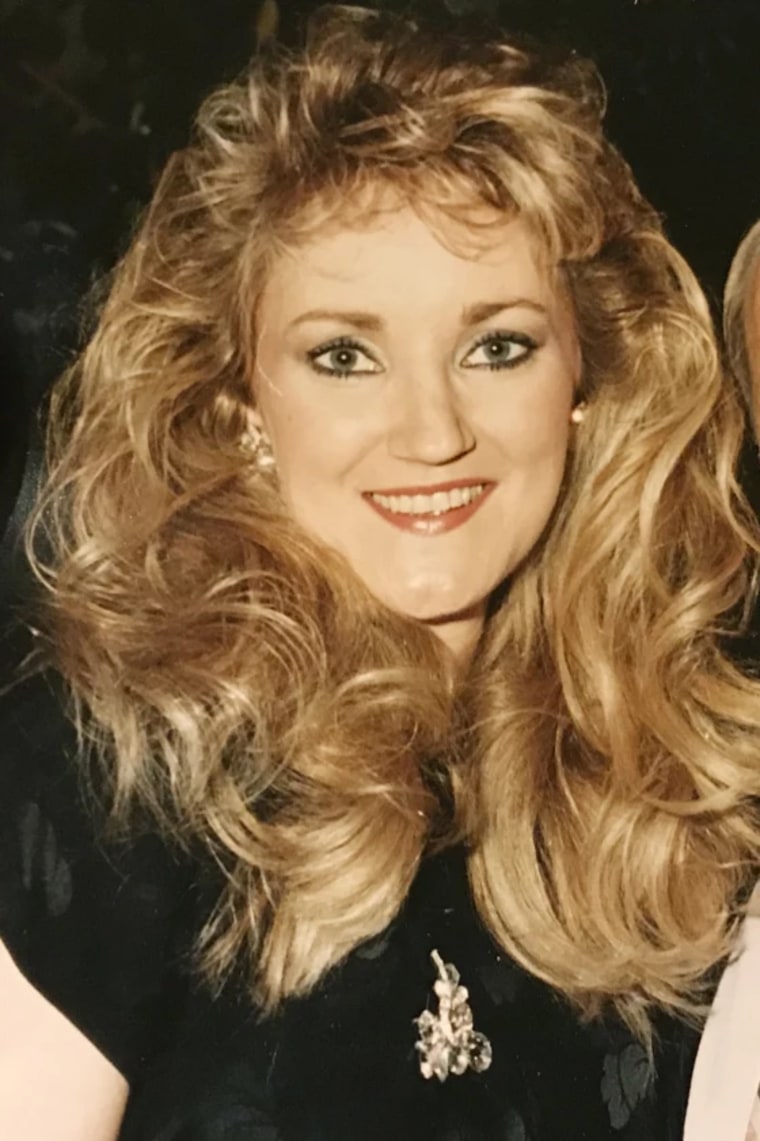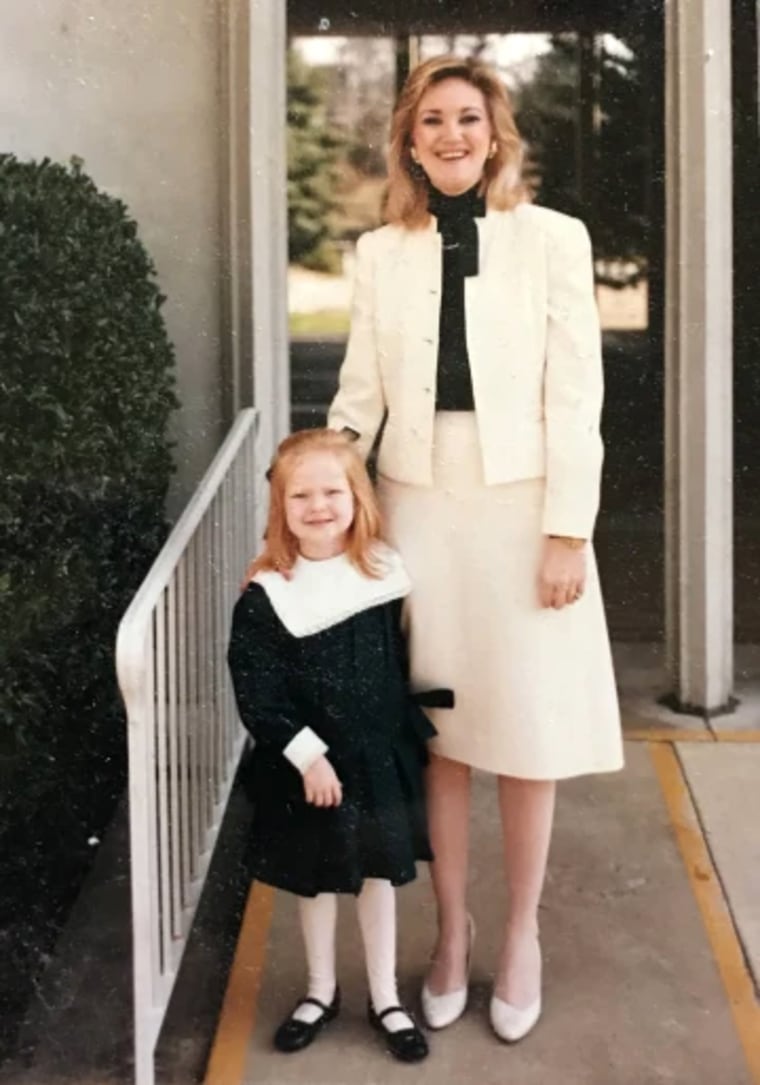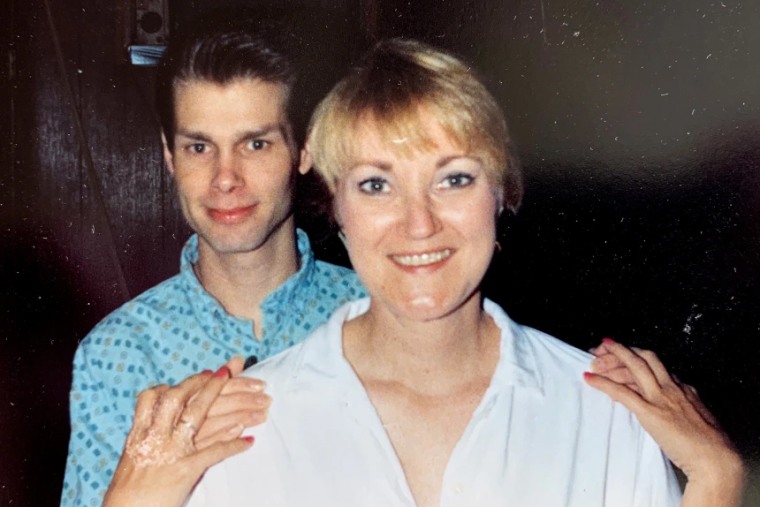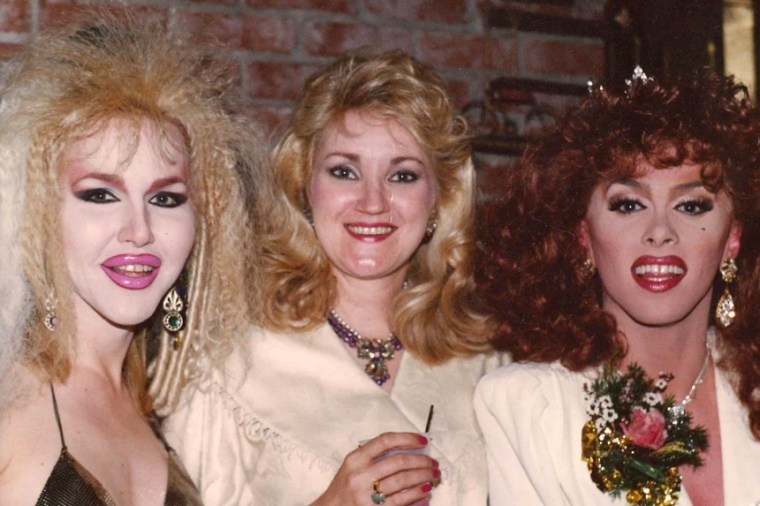Revry celebrates Pride Month with an entire June calendar highlighting incredible Queer content made by and for the community.
With Queer content Revry’s primary focus year round, Pride Month allows Revry the opportunity to showcase their wide array of content from Queer creators of all different backgrounds and walks of life. Revry aims to inspire exploration with diverse content and provide a space for inclusivity within the community.
Pride Month on Revry is kicked off by two highly anticipated events playing in the first week of the month. “Can’t Cancel Pride” on June 4th is a virtual benefit hosted by iHeartMedia and P&G featuring musical appearances from influential voices in the LGBTQ community, and Revry Presents House of Pride Brought to You by McDonald’s on June 6th – a day long virtual celebration of LGBTQ culture, music, comedy, dance and more. Throughout the month Revry will premiere brand new Revry Originals including The Millennial Experience, Strut and Querencia. In addition, we have powerful documentaries playing throughout the month like Happy Birthday Marsha on the anniversary of the Stonewall Uprising.
The global Queer TV network, run by members of the LGBTQ community and allies, takes this month as an opportunity for audiences to find even more free Queer entertainment playing on Revry’s Live Linear channels and On Demand at www.revry.tv.
For a Curated Highlight’s Calendar List with Images CLICK HERE.
The full calendar of events is below.
PRIDE MONTH CALENDAR ON REVRY
Tuesday, June 1, 2021
Saturday Church – The story of 14-year-old Ulysses, a shy and effeminate boy, who finds himself coping with new responsibilities as “man of the house” after the death of his father. Living alongside his mother, younger brother, and conservative aunt, Ulysses is also struggling with questions about his gender identity. He finds an escape by creating a world of fantasy filled with dance and music. Ulysses’ journey takes a turn for the better when he encounters a vibrant transgender community, who take him to “Saturday Church,” a program for LGBTQ youth. Ulysses manages to keep his two worlds apart; appeasing his aunt and discovering his passion for the NYC ball scene, and voguing, until his double life is revealed. Ulysses must find the courage to be who he truly is, all while risking losing those he cares about most.
Life is Easy – Jamie-Li and Curtis. Yin and Yang. Potato and gravy. Bff’s since childhood, Jamie-Li; a straight Chinese-Kiwi woman, and Curtis; a gay white man, have a friendship that defies race, gender and sex. After a night of wet, wild and surreal partying on their joint 25th birthday, the two Gemini’s wake up to find themselves in each other’s bodies, “Freaky Friday” styles, revealing a hot mess of unexplored issues that unravels the way they see each other, and themselves.
Walk for Me – A transgender teenager is torn between their devotion to their mother and their desire to be their authentic self. When their mother finds women’s underwear and a flyer to a Gay Ball in their bedroom, she decides to track down her child and confront them.
Wednesday, June 2, 2021 – International Sex Workers Day
Glamour Dolls – Two best friends, and male sex workers, dream of becoming professional actors. They receive the opportunity to finally show off their acting chops…as the leads in an underground drag show.
We Did Not Fall From the Sky – Meet Purushi, one of South India’s colorful and complex transgender community, as she dreams of life beyond sex work. Set against the backdrop of a country still reeling from a new law that officially recognizes transgenders as a ‘third sex’, the documentary aims to shed some light on a section of society that is too often ignored or ridiculed.
Familia? – A Transgender woman, pressured into returning to sex work by her demanding mother so that she may financially provide for her family in their native country, also deals with a pesky teenage neighborhood boy who’s in love with her, and a married lover with empty promises.
Thursday, June 3, 2021
CultureQ – Culture Q is the world’s first weekly queer-centric news series brought to you by the leading global queer streaming network, Revry. This innovative, weekly news series creatively features entertainment, pop culture, lifestyle and political news with wit and insightfully nuanced perspectives. Emphasizing the queer millieu, Culture Q stands to be the leading, weekly forum for boundary-pushing discussions and commentary. Hosted by digital news influencer pioneers, Shira Lazar and Andy Lalwani of the highly successful What’s Trending, Culture Q will feature an ever-changing cavalcade of guests who help capture that X-factor which defines queer culture.
Friday, June 4, 2021
iHeartMedia & P&G’s “Can’t Cancel Pride” – iHeartMedia and P&G’s “Can’t Cancel Pride,” a virtual relief benefit for the LGBTQ+ community, premiering June 4 on Revry. The event will feature performances and appearances from the most influential voices in the community, as well as the biggest names in culture and entertainment. For the full lineup, please visit HERE. The event will be hosted by iHeartMedia’s on-air personality Elvis Duran and diamond-selling singer-songwriter Bebe Rexha.
Saturday, June 5, 2021
Querencia – This Revry Original is about Teka, who just broken up with her boyfriend and left home for the first time to follow her dream of becoming a dancer. The big city, and the big city talent she competes with at auditions, have left her feeling very lonely. Enter: dating apps. When Teka mistakenly selects “women seeking women” on her profile, she meets Abe, a struggling musician who needs to move on from her ex, which might just be the happiest of accidents.
Queer ClassiX – The Revry Original Queer ClassiX: But I’m a Cheerleader includes a screening of the Director’s Cut of the iconic LGBTQ film, starring Natasha Lyonne, Clea Duvall, Michelle Williams, and Rupaul! This special screening is hosted by comedian AB Farrelly, featuring fun facts, interviews, and insights about the classic film which celebrates its 21st anniversary.
Sunday, June 6, 2021
Revry Presents House of Pride Brought to you by McDondald’s – This special variety extravaganza is hosted by Manila Luzon, Shar Jossell, and Ryan Mitchell, and includes performances by RuPaul’s Drag Race alums, LaLa Ri and Laganja Estranja; Andro Gin; Shea Diamond; Sam Tsui; Emily Vu; Violet Grae; Sir Christopher Saint; HBO Max’s Legendary winners, the House of Balmain; and comedians AB Farrelly and Irene Tu.
Thursday, June 10, 2021
Culture Q
Friday, June 11, 2021 – Graduation
Kappa Force – A campy superhero satire, Kappa Force is the newest Revry Original series – an intersectional queer take on college rom-coms. Welcome to State University, the premier all-american university that has everything: greek life, Division 1 sports, five kick ass sorority sisters doubling as a masked crime fighting unit keeping the campus safe from evil, and a Chipotle. This fully-formed fantasy comes complete with pop parodies of the Spice Girls, Justin Bieber, Paula Cole, Third Eye Blind and tongue-in-cheek nods to queer history.
Were You Gay in High School? – Two queer women recall their awkward, closeted high school days of kissing boys and straight-girl crushes.
Closet Space – High school closet cases Jake and Tara must come out of the closet to embrace their true selves. But that’s only half the problem; once you’re out, there’s a pressure to be all in. For Jake and Tara, the hardest part is figuring out who they want to be.
The Millennial Experience – The Millennial Experience is one part dance-for-film and one part documentary. The film explores cultural appropriation vs appreciation, LGBTQIA+ culture, feminism and how these topics impact the Millennial generation. The dance sequences in the film are adapted from director Alex Crozier’s stage production MILLENNIALS which focuses on the aforementioned themes. Fourteen on-camera interviews that expound on the main topics were conducted with people of various ages, ethnicities, sexual orientations, and genders. The Millennial Experience seeks to uplift the voices of women, LGBTQIA+, and BIPOC communities in an effort to create a more equitable and just world.
Most Likely – A romantic comedy about a group of friends who spend a weekend in rural New Hampshire for an unconventional wedding celebration.
Ma Ma – Penélope Cruz delivers an extraordinarily emotional performance in ma ma, the newest film from acclaimed director Julio Medem. Honoring the high melodrama of Pedro Almodóvar and Douglas Sirk, Ma Ma follows Magda as she experiences tragedies and miracles alike. Just as Magda is diagnosed with breast cancer, she meets Arturo, a devoted husband and father in the midst of unspeakable loss. Their chance encounter leads both down a path of strength, grace, love, and rebirth.
Monday, June 14, 2021 – Flag Day
War. Room – War. Room is an experimental film, based on the personal experiences of the artist’s life being gay in the Israeli military.
Vote Neil – Two gay Marine vets in Birmingham, Alabama battle their hardest mission: Election Week 2018. Neil Rafferty is a first time politician running to be the first openly gay man in the Alabama Legislature. Mike Rudulph is his fiancé and campaign manager searching for purpose. An intimate portrait about politics, the Southern LGBTQ experience, and one incredible love story.
Thursday, June 17, 2021
Culture Q
Friday, June 18, 2021
A Sip With Vodka: A Russian Guide to Becoming a Real Housewife – This is a new digital comedy series pilot that chronicles the adventures of a woman named Natasha who moves from a small Russian village to New York City with her son, Robert, in the hopes of becoming a real housewife and cabaret star. On her journey, she meets a lonely man named Lyle who takes her into his Hells Kitchen apartment. This an absurd and heart warming story about self discovery shown through the lens of an immigrants idealized perception of America.
Strut – This Revry Original series is the story of a reclusive nerd who begins a journey to self-confidence by forming a successful escorting agency with her three best friends.
Howl – Allen Ginsberg is a poet, counter-culture adventurer and chronicler of the Beat Generation. In his famously confessional style, Ginsberg recounts his life and search for personal liberation that led to the most timeless and electrifying work of his career, the poem HOWL. Meanwhile, in a San Francisco courtroom, HOWL is on trial. Prosecutor Ralph McIntosh sets out to prove that the book should be banned, while defense attorney Jake Ehrlich argues for freedom of speech and creative expression.
Saturday, June 19, 2021 – Juneteenth
Masquerade – Sam and Ninny come to the horrifying realization that their lives are in jeopardy, and they must escape this Virginian plantation at once.
Clash – A critique on the lack of QPOC representation in UK television and film, highlighting inequality and the absence of media engagement with Britain’s colonial past.
She – “She” follows Tanesh Nutall, a 50-year old black transgender woman from Rahway, New Jersey. In February 2016, Tanesh was confronted by a city employee for using a women’s restroom in Downtown San Francisco. Throughout the film, Tanesh seeks justice and make amends with family members that were not accepting of her gender identity. Not only does “She” discuss queer people in urban spaces but one’s ability to accept themselves despite the odds against them.
We Can’t Breathe – During a global pandemic, the killing of one man sparks the biggest social movement in history. Cities all over the world erupt in protest, fueled by centuries of racial tension. In Los Angeles, a queer black woman is determined to capture the movement through her lens, so she hits the streets, camera in hand. What she discovers is a diverse world of impassioned protesters from all walks of life, coming together to make themselves heard.
Sunday, June 20, 2021 – Father’s Day
To Be Me – To Be Me tells the story of a young, mid-western African American who struggles with their gender identity. Played by Kate Rose Wilburn, a non-binary trans female, along with Emmy award winning actor Kim Estes as their father, this Revry Original series is here to shed light on the under represented and supported subject of gender identity.
Homework – A young father (27), his twelve year old daughter, one night club, two secrets and a lie that will solve everything.
Papa Rainbow – “Papa Rainbow” features six Chinese fathers who talk openly and freely about their experiences with their LGBT children. Speaking out against discrimination and stigma, they redefine what it means to protect a household. They fully embrace their kids for who they are, and become pioneer activists fighting for an equal and diverse society.
Memories of a Penitent Heart – Combining a wealth of recently discovered home movies, video, and written documents with artfully shot contemporary interviews and vérité footage, Memories Of A Penitent Heart is a documentary that cracks open a Pandora’s box of unresolved family drama. Originating from filmmaker Cecilia Aldarondo’s suspicion that there was something ugly in her family’s past, the film charts her excavation of the buried family conflict around her uncle Miguel’s death, and her search for Miguel’s partner Robert a generation later. After two years of dead ends, Robert turns up: but he’s not the same man. He’s reinvented himself as Father Aquin, a Franciscan monk with twenty-five years of pent-up grief and bitterness. For the first time, a member of Miguel’s family wants to hear Aquin’s side of the story—but is it too little, too late? A story about the mistakes of the past and the second chances of the present, Memories Of A Penitent Heart is a cautionary tale about the unresolved conflicts wrought by AIDS, and a nuanced exploration of how faith is used and abused in times of crisis.
Saturday, June 26, 2021 – Anniversary of Same Sex Marriage Legalization
Political Animals – Political Animals celebrates the legendary civil rights victories of four trailblazing California state politicians: Carole Migden, Sheila Keuhl, Jackie Goldberg, and Christine Kehoe. Fierce and unrelenting, these courageous women toppled a partisan majority and emerged victors to pass historic legislation for social justice and LGBT+ equality. It was a hard fight – filled with vehemently heated debates and hateful insults hurled by opponents. Today, the message behind Political Animals is more important than ever as the current political theatre unfurls around the globe. These inspiring biographies further reveal the critical importance for public resistance at the local level to pressure lawmakers to enact difficult change. Political Animals is a clear call to action for a new era of greater democratic participation. We invite you to follow in the footsteps of these historic leaders and become the next pioneering political animal!
Monday, June 28, 2021 – Anniversary of Stonewall Riots
Happy Birthday Marsha – Happy Birthday, Marsha! is a film about iconic transgender artist and activist, Marsha “Pay it No Mind” Johnson, and her life in the hours before she ignited the 1969 Stonewall Riots in New York City.




